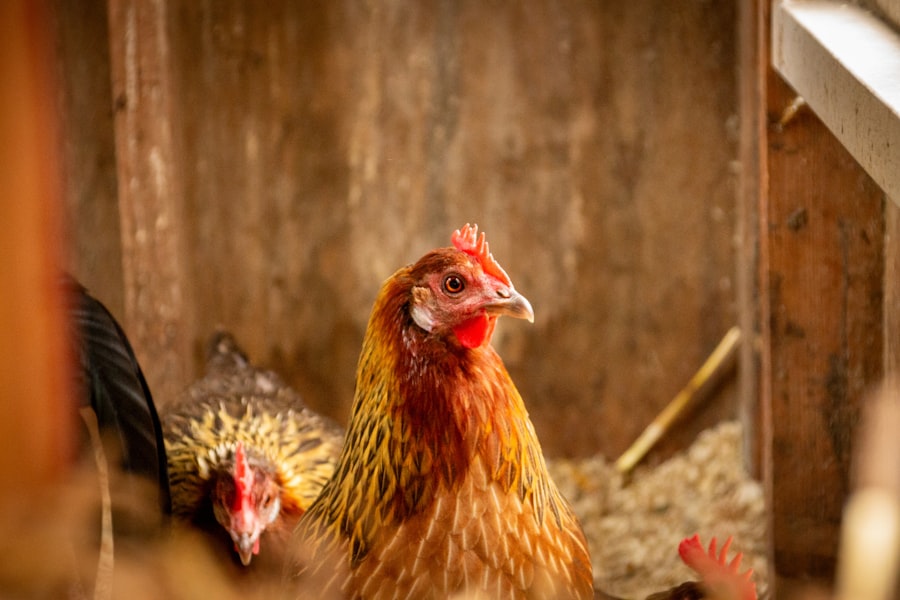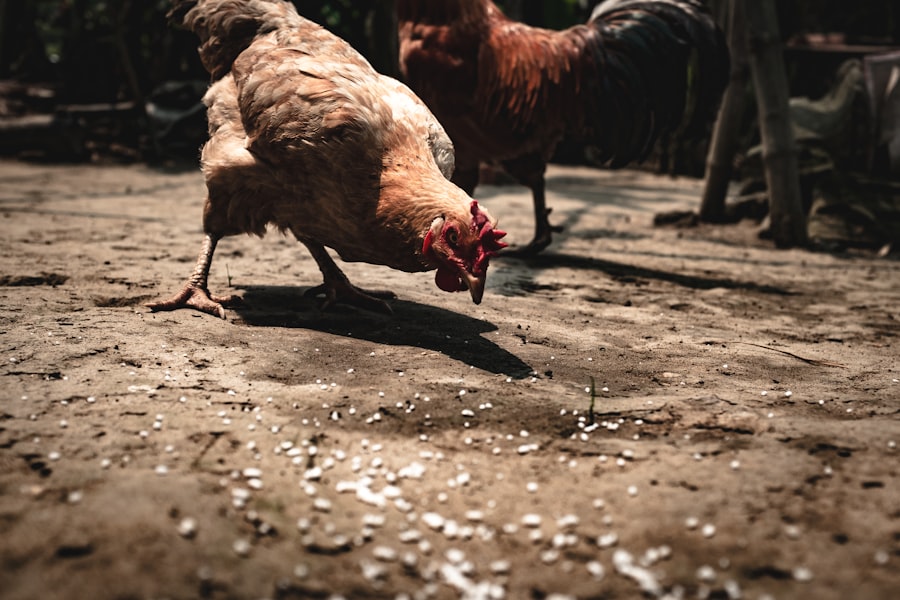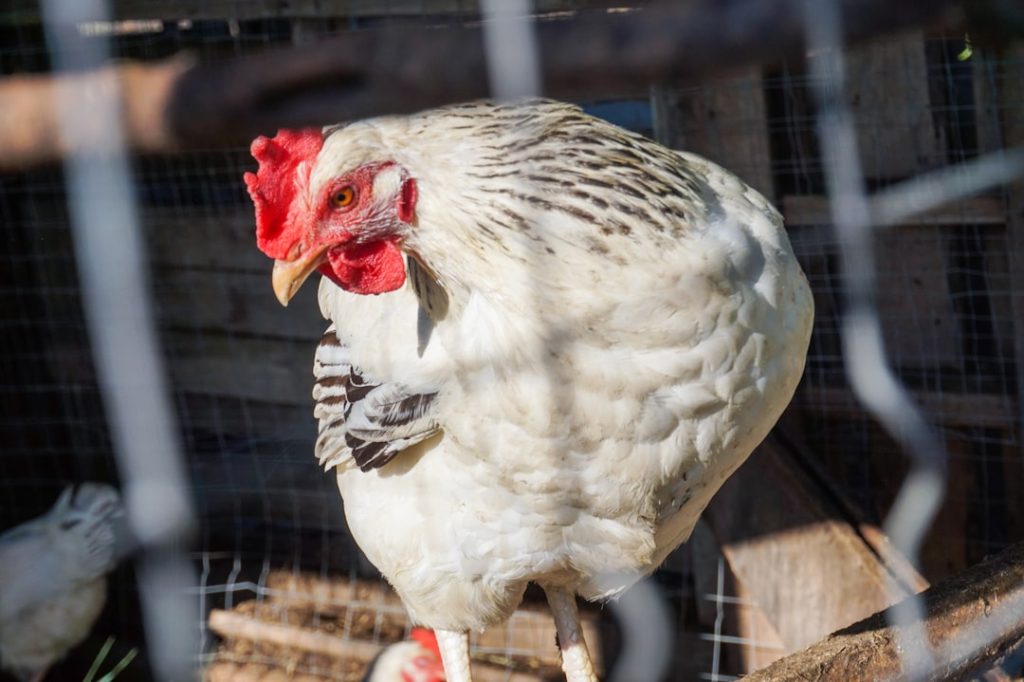Raising chickens requires a significant commitment of time, effort, and resources. Daily care includes feeding, watering, and cleaning their living quarters. Chickens need protection from predators and regular health check-ups.
This responsibility can last for several years, as chickens have a relatively long lifespan with proper care. The financial aspect of raising chickens is considerable. Initial costs include setting up a coop, fencing, and purchasing necessary equipment.
Ongoing expenses involve feed, bedding, and veterinary care. Potential chicken owners should carefully evaluate their ability to meet these financial obligations. Before deciding to raise chickens, it is crucial to assess one’s capacity to provide the necessary time, resources, and dedication.
While chicken ownership offers benefits such as fresh eggs and the satisfaction of animal care, it is important to approach this endeavor with a realistic understanding of the long-term commitment involved.
Table of Contents
- 1 Setting Up the Coop
- 2 Daily Care and Maintenance
- 3 Feeding and Nutrition
- 4 Health and Veterinary Care
- 5 Egg Collection and Handling
- 6 Long-Term Considerations
- 7 FAQs
- 7.1 What is the general effort required to keep chickens?
- 7.2 How much time does it take to care for chickens on a daily basis?
- 7.3 What are the main tasks involved in caring for chickens?
- 7.4 Do chickens require a lot of space and housing?
- 7.5 Are there any specific health considerations when caring for chickens?
- 7.6 What are the benefits of keeping chickens despite the effort involved?
Key Takeaways
- Raising chickens requires a significant time and financial commitment, as they need daily care and attention.
- Setting up a coop involves providing adequate space, ventilation, and protection from predators.
- Daily care and maintenance includes providing fresh water, cleaning the coop, and monitoring for signs of illness or distress.
- Feeding chickens a balanced diet with access to grit and calcium is essential for their health and egg production.
- Regular health check-ups and prompt veterinary care are crucial for preventing and treating common chicken illnesses.
- Proper egg collection and handling practices are important for ensuring egg quality and safety for consumption.
- Long-term considerations include planning for the chickens’ lifespan, egg production decline, and potential rehoming or retirement options.
Setting Up the Coop
Choosing the Right Location
The first step in setting up a coop is to choose an appropriate location. The coop should be situated in a well-drained area with good ventilation and protection from the elements.
Providing Space and Security
It’s important to provide enough space for the chickens to move around comfortably, both inside the coop and in an outdoor run. The coop should also be secure from predators, with sturdy fencing and a predator-proof design. Inside the coop, nesting boxes should be provided for the hens to lay their eggs, as well as perches for roosting.
Creating a Comfortable and Clean Environment
The coop should be lined with bedding material such as straw or wood shavings to provide a comfortable and clean living space for the chickens. Additionally, access to food and water should be readily available inside the coop. Regular cleaning and maintenance of the coop are essential to prevent the buildup of waste and bacteria.
By setting up a well-designed and secure coop, you can create a safe and comfortable home for your chickens.
Daily Care and Maintenance

Caring for chickens involves daily tasks to ensure their health and well-being. One of the most important aspects of daily care is providing fresh food and water. Chickens require a balanced diet that includes a combination of commercial feed, grains, fruits, and vegetables.
It’s important to provide access to clean water at all times, as dehydration can quickly become a serious issue for chickens. Additionally, regular cleaning of the coop is essential to maintain a healthy living environment for the chickens. This includes removing soiled bedding, cleaning nesting boxes, and ensuring proper ventilation.
Another crucial aspect of daily care is monitoring the chickens for signs of illness or injury. Regular health checks can help identify any potential issues early on, allowing for prompt treatment and prevention of further complications. Additionally, spending time with your chickens each day can help you develop a bond with them and observe their behavior, which can provide valuable insights into their overall health and well-being.
By dedicating time each day to the care and maintenance of your chickens, you can ensure that they are happy, healthy, and thriving.
Feeding and Nutrition
Proper nutrition is essential for the health and productivity of your chickens. A balanced diet is crucial to ensure that they receive the necessary nutrients for growth, egg production, and overall well-being. Commercial chicken feed is formulated to provide a complete and balanced diet for chickens, but it’s also important to supplement their diet with grains, fruits, and vegetables.
Additionally, providing access to grit is essential for chickens to properly digest their food. The amount of feed required will vary depending on factors such as age, breed, and activity level. It’s important to monitor their food intake and adjust accordingly to prevent underfeeding or overfeeding.
Additionally, providing access to fresh water at all times is crucial for proper digestion and overall health. Regularly cleaning feeders and waterers will help prevent contamination and ensure that your chickens have access to clean food and water. By paying close attention to their feeding habits and providing a balanced diet, you can help ensure that your chickens remain healthy and productive.
Health and Veterinary Care
Maintaining the health of your chickens is essential for their well-being and productivity. Regular health checks can help identify any potential issues early on, allowing for prompt treatment and prevention of further complications. It’s important to monitor your chickens for signs of illness or injury, such as changes in behavior, decreased egg production, or physical abnormalities.
Additionally, providing a clean living environment and practicing good hygiene can help prevent the spread of disease among your flock. In addition to regular health checks, it’s important to establish a relationship with a qualified avian veterinarian who can provide guidance on preventive care and treatment options. Vaccinations may be recommended depending on your location and the prevalence of certain diseases in your area.
Additionally, having a plan in place for emergencies or unexpected health issues is crucial for the well-being of your flock. By prioritizing the health of your chickens and seeking professional veterinary care when needed, you can help ensure that they remain healthy and thriving.
Egg Collection and Handling

Daily Egg Collection
Eggs should be collected frequently to prevent them from being damaged or soiled by other hens. This daily routine will help maintain the quality and freshness of the eggs.
Handling Eggs with Care
It’s essential to handle eggs gently to prevent cracking or breaking the shells, as this can increase the risk of contamination. Proper handling techniques will help minimize the risk of damage and keep the eggs fresh.
Storing Eggs Properly
After collecting eggs, it’s vital to store them properly to maintain their freshness and quality. Eggs should be stored in a cool, dry place away from strong odors or contaminants. Additionally, cleaning dirty eggs before storage using a gentle abrasive such as sandpaper or a brush can help remove any dirt or debris.
Long-Term Considerations
Raising chickens is a long-term commitment that requires careful consideration of various factors. As chickens can live for several years with proper care, it’s important to plan for their long-term needs. This includes considering factors such as housing upgrades as they grow, changes in their dietary needs as they age, and potential health issues that may arise over time.
Additionally, it’s important to consider the long-term impact of raising chickens on your lifestyle and resources. As your flock grows, you may need to allocate more time and resources to meet their needs. It’s important to consider how raising chickens fits into your long-term plans and whether you are prepared for the ongoing commitment involved.
In conclusion, raising chickens can be a rewarding experience that provides fresh eggs and the joy of caring for these animals. However, it also requires a significant commitment of time, effort, and resources. By understanding the level of commitment involved in caring for chickens, setting up a suitable living environment, providing daily care and maintenance, ensuring proper feeding and nutrition, prioritizing health and veterinary care, handling eggs properly, and considering long-term implications, you can create a fulfilling experience for both you and your flock.
If you’re considering keeping chickens, you may be wondering how much effort it takes to care for them. According to a recent article on Poultry Wizard, “The Chicken Coop Country Diner,” maintaining a chicken coop and keeping chickens healthy and happy requires dedication and attention to detail. The article provides valuable insights into the daily tasks and responsibilities involved in raising chickens, making it a must-read for anyone considering starting their own flock. (source)
FAQs
What is the general effort required to keep chickens?
Keeping chickens requires a moderate amount of effort, including daily feeding, providing fresh water, cleaning the coop, and monitoring their health and well-being.
How much time does it take to care for chickens on a daily basis?
Caring for chickens typically requires about 15-30 minutes of daily attention, including feeding, watering, and collecting eggs.
What are the main tasks involved in caring for chickens?
The main tasks involved in caring for chickens include providing a balanced diet, ensuring access to fresh water, cleaning the coop, monitoring for signs of illness, and protecting them from predators.
Do chickens require a lot of space and housing?
Chickens require a suitable coop or housing that provides enough space for them to move around comfortably and protection from the elements and predators. The amount of space needed depends on the number of chickens being kept.
Are there any specific health considerations when caring for chickens?
Chickens require regular monitoring for signs of illness, proper nutrition, and protection from common poultry diseases. It is also important to keep their living area clean to prevent the spread of disease.
What are the benefits of keeping chickens despite the effort involved?
Keeping chickens can provide a sustainable source of fresh eggs, natural pest control in the garden, and the enjoyment of observing and interacting with these unique and entertaining animals.
Meet Walter, the feathered-friend fanatic of Florida! Nestled in the sunshine state, Walter struts through life with his feathered companions, clucking his way to happiness. With a coop that’s fancier than a five-star hotel, he’s the Don Juan of the chicken world. When he’s not teaching his hens to do the cha-cha, you’ll find him in a heated debate with his prized rooster, Sir Clucks-a-Lot. Walter’s poultry passion is no yolk; he’s the sunny-side-up guy you never knew you needed in your flock of friends!







